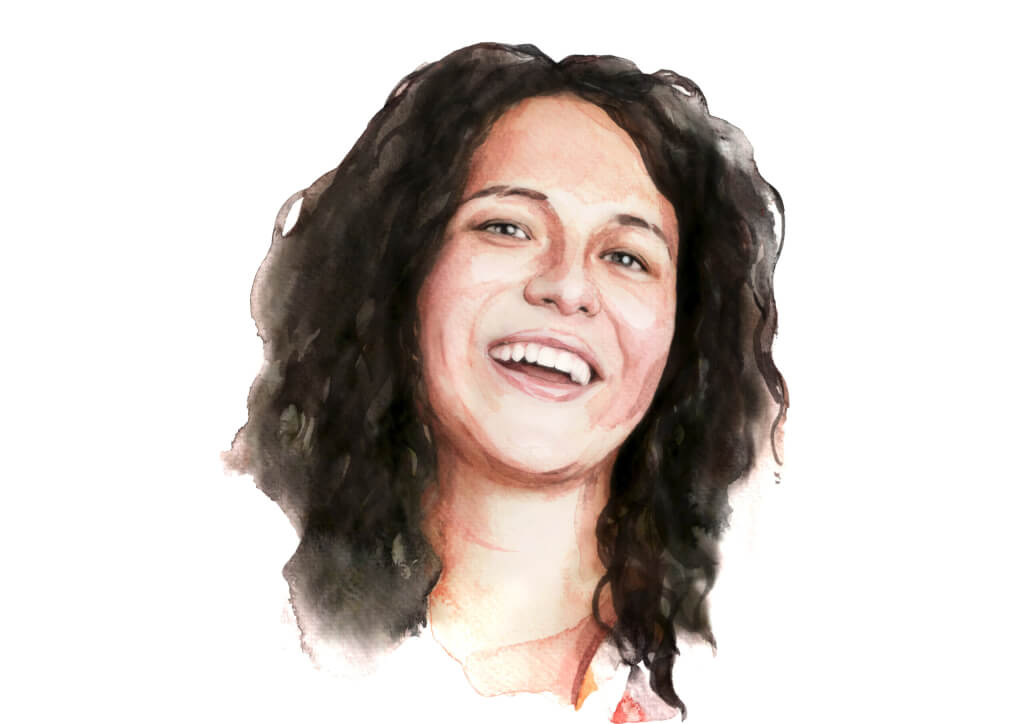Eliza Kosoy – Founder of Eliza Dolls, Ph. D. student at Berkeley in Artificial Intelligence

UC Berkeley Ph.D. candidate. Founder of Eliza Dolls. First generation American. Female entrepreneur. Disruptor. Innovator. Believer in women’s ability to run the world. These are but a few of the qualities Eliza Kosoy can’t help but exude. Her well-founded belief in her research and development where AI and childhood development intersect, and its ability to elevate women and thus change the world for the better, are galvanizing.
Eliza is proof that challenges along one’s path are inevitable and that you do not need to be born knowing what you want to do to succeed. Not all innovators are born with a silver spoon awaiting arrival, family connections, or Ivy League degrees. Sometimes, it is those who have to struggle to find their purpose and passion that are the ones to watch.
The Formative Years
She wasn’t always a fifth-year Ph.D. candidate at UC Berkeley about to launch a Kickstarter for Eliza Dolls, the innovative business that makes dolls that teach girls how to code and boast the ability to eliminate the gender diversity gap in STEM (science, tech, engineering, and math) fields. When she first started, Eliza was a scrappy, big-city-loving kid who struggled to find a place among her peers. She was a New York City native, born in Brooklyn four months after her parents immigrated as refugees from Ukraine. To this day, she finds the chaos of the uber-urban environment and buildings so big they block out the sun nothing short of inspiring; the vastness that is the city sprawl lends itself to endless possibility.
Eliza’s parents came to the U.S. in 1991 following the collapse of the Soviet Union. With degrees and careers in engineering that were no longer recognized, her parents took jobs that would pay the bills. Her dad worked with the New York State government in the department that managed fairies, where he continues to work. It was this role that moved the family to Albany when Eliza was in fifth grade. Her mom has worked in various roles, including at a pharmacy and now as a librarian. Having to leave their engineering degrees in their country of origin and start from scratch in a foreign country was something Eliza witnessed both of her parents struggle through.
Spending those formative years in NYC and then having to leave a place of such cultural wealth and inspiration behind in her fifth year in elementary school was not a transition Eliza welcomed with open arms. The fact that she and her family were not like the majority was not lost on her, but it became much more apparent and divisive for her once they left the big city. The struggle of coming into this district at a time when she was also trying to figure out who she was in her middle school and high school years proved challenging as well.. Hyper-awareness of her differences, ones that never felt celebrated, left her feeling socially isolated. Eliza struggled academically, as she did not fully grasp the impact of how her academic performance in each class could affect her future in the USA. Her parents’ reality in the Soviet Union was that the state provided university education, and thus everyone partook and received a decent education. The cost-prohibitive nature of college in the US was something Eliza’s family was unprepared for. So, when it came time to apply to college her senior year, Eliza was anything but inspired, so she opted to take a year off from school instead.
Life goes on, though, and at the prompting of her best friend, the two young women joined AmeriCorps and moved to Miami. Living on a stipend of $1000 a month each, they had to get creative. They shared a room in an apartment with other roommates, and struggled financially, but tried to make it work. Volunteering was something Eliza had always enjoyed and derived passion from. So she threw herself into her placement as a volunteer at an under-resourced school working with underprivileged youth. Working with children was formative and gave her a sense of professional direction she hadn’t had prior, and working with this demographic of children reinforced for her the class divides existing in this country and how not being a member of the upper-crust impacts one’s ability to gain access and thrive.
Eliza’s Renaissance
Following her experience with AmeriCorps, she was ready to get back into the classroom, as she had a renewed sense of wanting to do well at school now. Eliza found herself at Emmanuel College in Boston. Between scholarships and a resident advisor position, her family was able to swing the remaining tuition and cost-of-living expenses. Art therapy was her original academic pursuit, which wasn’t going well. With a stronger understanding of the importance of a good GPA, Eliza switched to math, a subject she had always enjoyed. College, as it can be for many of us, awakened Eliza. She had female professors who inspired her, and finding herself in the city again, Boston this time, she thrived on exploring its vastness. This was Eliza’s renaissance.
During college, Eliza did a few tech internships and found a mentor in the head of Emmanuel’s math department. The work experience and her mentor helped guide her to where she could imagine herself as a graduate student following college completion in 2014. Despite her love for math, she was not drawn to a male-saturated field and set her sights elsewhere. With the help of a connection through the chess club, she got a job as a research assistant at MIT doing animal research in the neuroscience department. Working in this lab gave her access to the brain and cognitive science department, where she could attend any and all talks and lectures. One of these talks serendipitously introduced her to the field of cognitive science. In this field, she continues to work today.
Following that fateful talk, Eliza secured a job working in the cognitive science lab at MIT, where she found herself working with children with an AI caveat. Her role was Lab Manager, and her work involved conducting testing that grad students needed to be done with children. She performed this testing at the Children’s Museum in Boston, and after three years, it felt like it was time to move on. Eliza was ready to embrace the “what’s next” and wanted to see a different side of the field, live somewhere warmer, and continue her education. Enter UCB Ph.D. candidate.
Now, what about the Eliza Doll?
“No product on the market targets the natural interest of girls, combined with technology. Parents have so few options they feel they need to force their daughters to play with STEM products designed for boys to get their daughters on a STEM path. We believe little girls don’t have to sacrifice their interests to play with educational STEM toys.” –Eliza Dolls.
Motivated by her experience of being one of the few women in the labs where she worked and knowing her dislike for the impact male domination in the field was having on the direction of their research, Eliza began her dabbling and innovation. Before UCB, she created her first STEM doll prototype. It received an innovation prize which connected her to pioneers and trend-setters in the field and provided her with further funding for the research and development of her product.
Today, the Eliza doll is roughly the size of an American Girl doll, and it has an Arduino inside it, a programmable computer. The doll’s chest is transparent, so the child can see the computer screen and code the doll to do different things. A variety of sensors can be placed inside the doll, like a color sensor, and then the child can code a project herself, such as programming the doll to recognize color and then hold the color up to the doll and get it to match the outfit that she might be wearing at the time.
Essentially, the Eliza Doll exposes girls to coding and the hardware needed. Traditionally, all the stem tools on the market have been boy-orientated, and girls don’t want to play with them. According to Eliza, it’s as Play market research, and demand for products shows that many girls prefer playing with dolls, so let’s put tech inside them and enable girls to get smarter while playing with what they are naturally drawn to. As the website clearly explains, “No product on the market targets the natural interest of girls combined with technology. Parents have so few options they feel they need to force their daughters to play with STEM products designed for boys in order to get their daughters on a STEM path.”
The end game…
Running a business and pursuing a Ph.D. simultaneously is a delicate balance, but Eliza’s got this. The launch of Eliza Dolls is planned for this year, with the Kickstarter campaign coming summer 2023. Eliza’s goals for the near future include launching Eliza Dolls, generating high demand for them, and creating a household brand of products that girls want to engage with and help them learn simultaneously.
With all of this lived experience and accrued knowledge, in hindsight, her advice for her younger self is simple:
“To quote Mellissa Butler of The Lip bar on her episode of the “How I Built This” podcast – “I am more comfortable with the feeling of failure than I am regret” – that is how I feel so don’t give up your dreams!”
Keep living large, Eliza. If the doll’s trajectory is anything like yours, then the sky’s the limit.
